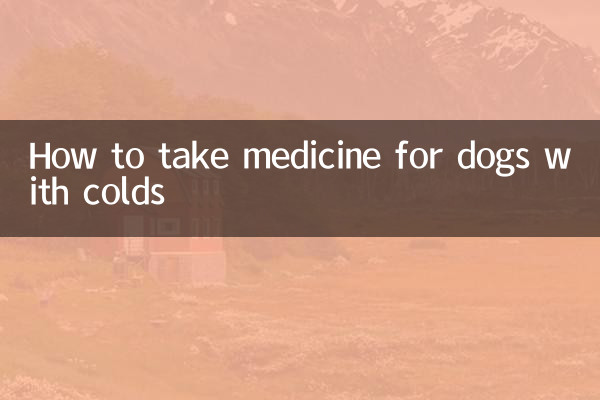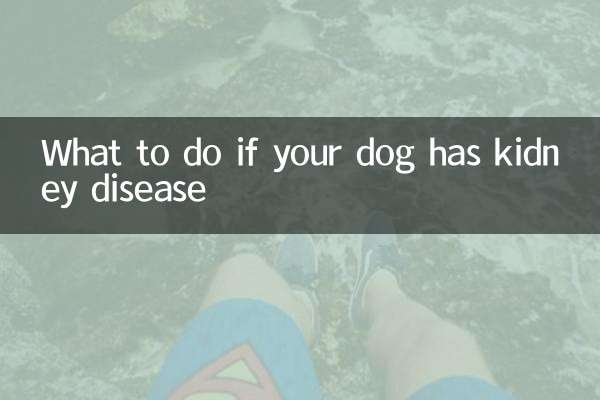How to take medicine for dogs with colds
Recently, pet health issues have become one of the hot topics, especially the treatment of dog colds. Many pet owners often don’t know how to take the correct medication when their dogs have cold symptoms. This article will introduce in detail the symptoms, medication guidelines and precautions for dog colds to help you scientifically care for your dog.
1. Common symptoms of dog colds

Symptoms of colds in dogs are similar to those in humans, mainly including:
| Symptoms | Description |
|---|---|
| sneeze | Frequent sneezing, possibly with nasal discharge |
| cough | Dry cough or phlegm, hoarse voice |
| runny nose | Nose is watery or purulent |
| decreased appetite | Decreased interest in food and reduced food intake |
| Lack of energy | Reduced activity and appears tired |
2. Medication Guide for Dog Colds
You need to be careful when using cold medicines for dogs. The following are some suggestions for the use of common medicines:
| Drug name | Purpose | dose | Things to note |
|---|---|---|---|
| amoxicillin | antibiotics, used for bacterial infections | 10-20mg/kg, 2 times a day | Veterinary guidance is required and no abuse is allowed |
| cough syrup | Relieve cough symptoms | Follow instructions or veterinary advice | Choose pet-specific products |
| Isatis root | Clear away heat and detoxify | Take a small amount | Not suitable for long-term use |
3. Medication precautions
1.Do not use human medicine: Many drugs used by humans have toxic side effects on dogs, such as ibuprofen, acetaminophen, etc., and it is strictly forbidden to give them to dogs.
2.Consult a veterinarian: Always consult your veterinarian before use and adjust the dosage based on your dog’s weight, age and health.
3.Observe reaction: Closely observe the dog’s reaction after taking the medication. If adverse reactions such as vomiting or diarrhea occur, the medication should be stopped immediately and seek medical attention.
4.stay hydrated: Make sure your dog drinks enough water during a cold to help metabolism and recovery.
4. Home care suggestions
In addition to medication, home care is also very important:
| Nursing measures | Specific methods |
|---|---|
| keep warm | Provide a warm resting environment for dogs to avoid catching cold |
| Nutritional supplements | Offer easily digestible foods such as chicken porridge |
| clean | Clean your dog’s nose and eye secretions regularly |
5. When do you need medical treatment?
If your dog exhibits any of the following symptoms, seek medical attention immediately:
- High fever that persists (body temperature exceeds 39.5°C)
- Difficulty or rapid breathing
- Persistent vomiting or diarrhea
- Mental state is extremely poor and refuses to eat
Conclusion
Although dog colds are common, correct medication and care are key. I hope this article can help you scientifically deal with dog cold problems and help your dog recover as soon as possible!

check the details

check the details